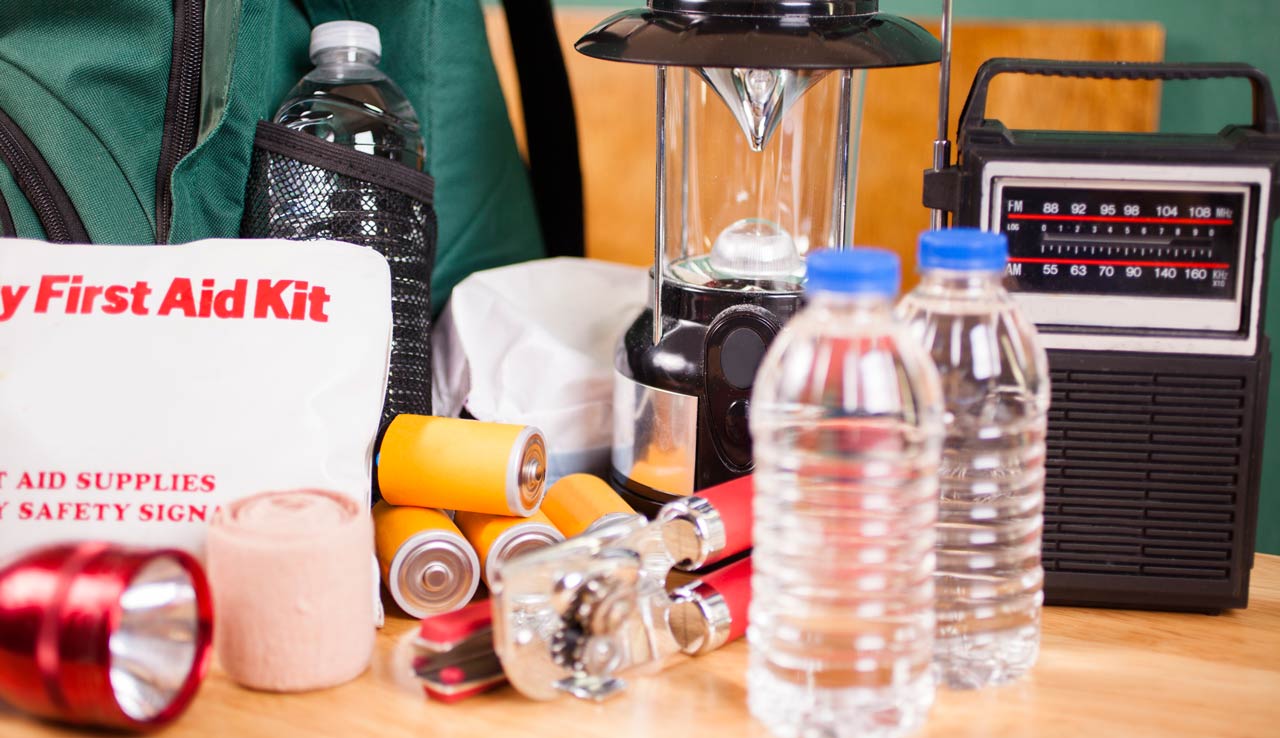If you live in an area where hurricanes occur, which is up to 100 miles from the coast, it’s crucial that you be as prepared as possible. Storms have been getting more significant and damaging, so decrease the stress and anxiety of hurricane season by being as ready as you absolutely can.
Hurricane Dangers
The life-threatening dangers associated with hurricanes include:
- Strong winds.
- Heavy rains.
- Flooding.
- Rip currents.
- Tornados.
- Landslides.
Prepare for the Season
Here are some things you can do ahead of hurricane season to be as prepared as possible:
- Research your specific area and know the risks of a hurricane there. If you don’t know what to expect, there’s no way you can be ready.
- Make sure you are on the list to receive any warning systems available in your area. Get a battery-powered radio so you will still get information if the cell towers and electricity go out.
- Prepare for the possible need to evacuate by having critical belongings packed and ready to grab at a moment’s notice during hurricane season.
- Gather at least three days’ worth of supplies in case you and your family need to shelter in place. This includes food that can be consumed without electricity, a can opener, medication, cash, a flashlight, batteries, first aid items, and pet supplies.
- Get familiar with your area’s evacuation routes, so you know exactly what to do if you must leave your home.
- Learn where your community’s storm shelter is and practice several routes for getting there in case some are blocked when you need to go.
- Place important documents and heirlooms in as safe a place as possible and keep digital copies that are password protected if you can.
When a Hurricane Is on the Way
When a hurricane is forecast to be arriving in your area within the next few days, you can do the following to prepare:
- Stay up to date on the forecast and any recommendations from local law enforcement.
- Double check your supplies to make sure you have enough for at least three days.
- Plan for how to communicate with family in other places during the storm. Text messages are usually the most reliable.
- Review evacuation routes and double-check you know how to get to area storm shelters multiple ways. Go over your emergency plan with all members of your family.
- Get your car filled with gas and keep a set of emergency supplies, including food, clothes, medicine, first aid supplies, a can opener, a radio, and a flashlight in it.
- Bring anything loose or lightweight inside, such as patio furniture.
- Trim tree limbs that might fall on the house.
- Cover your windows with storm shutters or plywood.
- Keep your cell phone and other devices charged.
During a Hurricane Warning
When the storm arrives:
- If evacuation is recommended for your area, do so immediately.
- Go to a designated storm shelter or interior room of your home on the lowest level possible to avoid flooding with your battery-powered radio and other supplies.
- If you must be outside, don’t walk or drive through flood waters, where you can be swept away and drown.
- Stay away from windows.
After a Hurricane
After the storm has passed, there will still be considerable danger to be aware of and avoid.
- Continue listening to and following instructions from local authorities.
- Don’t drive, swim, or walk through flood waters.
- Use protective clothing during clean-up efforts.
- Stay away from downed power lines, and don’t wade through water, which might be electrified due to downed wires you can’t see.
- Let your family and friends know you are safe.
- Take pictures of any property damage before you clean it up for insurance purposes.
For more information, visit https://www.ready.gov/hurricanes.
